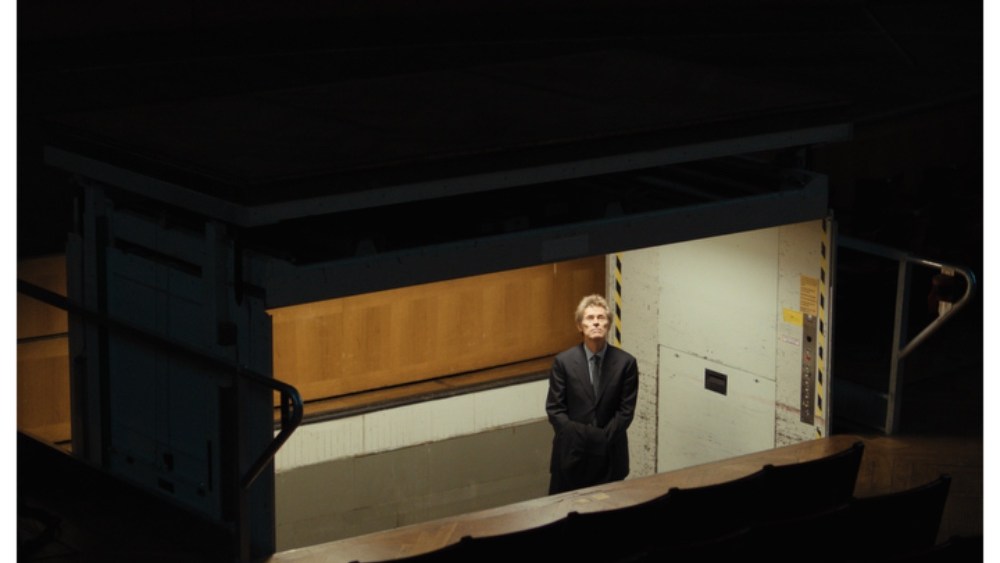The Souffleur’ Director Gastón Solnicki Sets Next Film
Argentine director Gastón Solnicki has finished his Viennese trilogy with Willem Dafoe-starring “The Souffleur.” But he’s already developing a “big-scale historical film” about his own grandfather, Polish-born chess master Miguel Najdorf.
“He was a very unique person and incredibly charismatic character whose story hasn’t yet been told. His life is one of the great 20th-century odysseys. I was only 18 when he passed away in Marbella, over a poker table,” recalls Solnicki, who would like to shoot it “around the world.”
“He shared moments with all these iconic figures who admired him, from Kirk Douglas to Perón, from Bobby Fisher to Che Guevara. That’s my next project, more ambitious, where the personal, autobiographical, historical and political all come nicely together.”
Solnicki is excited to be back working in Buenos Aires, “even though it’s a difficult moment,” he admits. “We are experiencing a shameful administration and the closure of the film institute.” But before tackling that, he will premiere “The Souffleur” in Venice, marking his third time at the fest following “Kékszakállú” and “Introduzione all’Oscuro.”
“Willem basically approached me and said: ‘So you can make a film in two weeks?’ There was also an interesting coincidence. The first part of the trilogy, ‘Introduzione all’Oscuro,’ had to do with the passing of my dear friend from Vienna, Hans Hurch. It turned out Willem had dinner with him in Rome, the very night he died.”
Working together was “wild,” admits Solnicki, who cast the star in a role of a dedicated hotel manager Lucius. After working there for 30 years, he finds out the building has been sold to an Argentine developer.
“My films really come together in the editing – on set, so much happens in a very spontaneous way. Willem was very courageous, which I was so impressed by – that someone of his talent and experience would still be so ambitious as an actor,” he says.
“He was so open, but also very rigorous with his time because he has all these other commitments. I wanted to make a more ambitious film, but Willem insisted I do what I always do – which was impossible, precisely because he was in it. We were like Herzog and Kinski, turning our hair gray,” he laughs.
“At first, and I love to quote John Cage here, what we were doing was trying to understand what we were doing.”
Lucius doesn’t want to let go of his fading universe. Soon, he enlists others to help him save what he considers as home.
“My psychoanalyst, who recently passed away, would say that hospitality was the greatest invention of our culture,” argues Solnicki. Making a film in a functioning hotel proved to be a challenge.
“It was a structure that protected us, but also gave us a lot of difficulties. It’s a peculiar piece of history and [architectural] styles. People see it as some kind of product placement, that we were hired by the hotel, but it wasn’t the case at all,” he jokes.
“This character, Lucius, is trying to preserve something that’s already gone. It’s something very present in this trilogy. All these gestures and rituals are disappearing, but still palpable – and filmable – in some places, with Vienna being one of them.”
Solnicki found “a certain darkness” in the culture there – he comes from an immigrant Jewish family – but also incredible tenderness.
“Whenever you get a glimpse of it, it’s so moving. The character played by Lilly Lindner is a good example of that and Willem was very touched by her. He wanted to work with non-actors. He saw that in my previous films. He told me we should do something together that neither of us could do alone. Which was very generous.”
“I’m very happy we managed to make a film that I find very personal, but at the same time, much more classical. And with Willem, who brings so much power to it.”
Solnicki’s trilogy – also including “A Little Love Package” – might be over, but he still cares for the city.
“I used to travel a lot with my family since I was young and you can see me in some of the photos in the film. Gustav Mahler said that if the world was ending, he would move to Vienna because over there, everything happens 100 years later,” he notes.
“I’m always open to real locations and real people, and Vienna has been my Cinecittà. I could grab onto things there I wouldn’t be able to in other cities.”
His films are never pre-structured, he insists. “Or pre-anything.”
“Cinema is where intuition weighs much more than rational logic. At a screening in France, an older lady said to me once: ‘I didn’t understand much of what I just saw, but I enjoyed not understanding it.’ Understanding can stop the emotion. Some people might find this approach challenging, but others will find it generous and joyful.”
“The Souffleur,” sold by Magnify, is produced by Little Magnet Films, Filmy Wiktora, Primo and KGP Filmproduktion. It debuts the teaser here:

